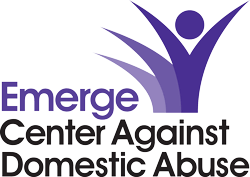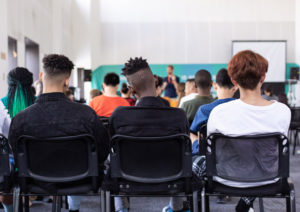
Love Is an Action—A Verb
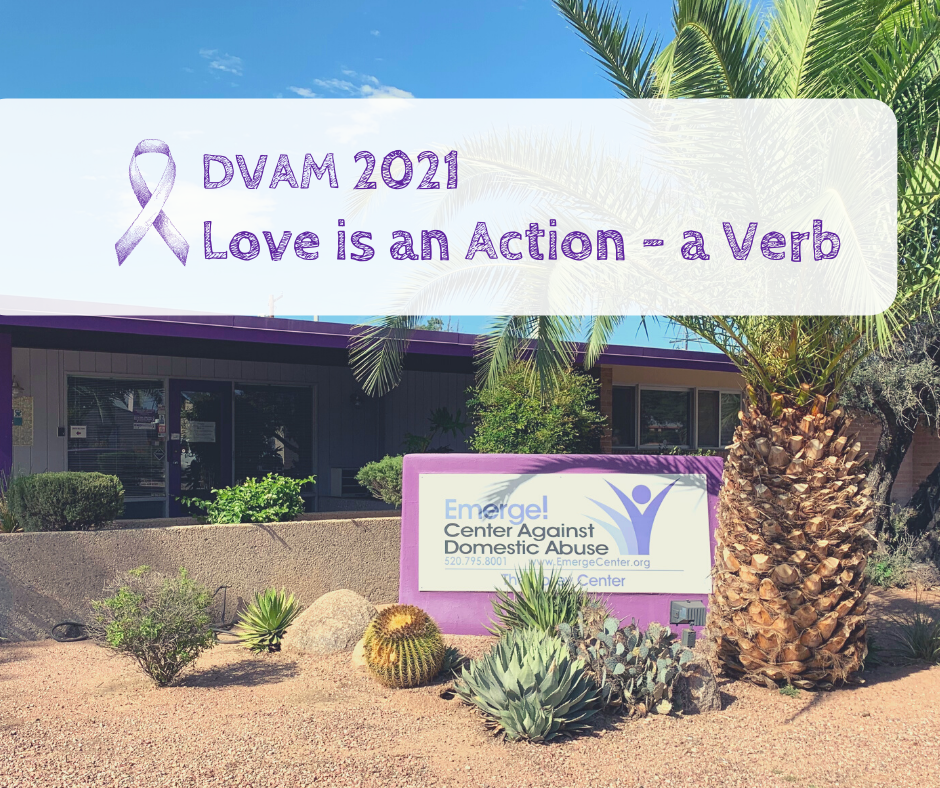
Written by: Anna Harper-Guerrero
Emerge’s Executive Vice President & Chief Strategy Officer
bell hooks said, “But love is really more of an interactive process. It’s about what we do, not just what we feel. It’s a verb, not a noun.”
As Domestic Violence Awareness Month begins, I reflect with gratitude on the love we were able to put into action for survivors of domestic violence and for our community during the pandemic. This difficult period has been my greatest teacher about actions of love. I witnessed our love for our community through our commitment to ensuring that services and support remained available for individuals and families experiencing domestic violence.
It is not a secret that Emerge is made up of members of this community, many of whom have had their own experiences with hurt and trauma, who show up every day and offer their heart to survivors. This is undoubtedly true for the team of staff who deliver services across the organization—emergency shelter, hotline, family services, community-based services, housing services, and our men’s education program. It is also true for everyone who supports the direct service work to survivors through our environmental services, development, and administrative teams. It is especially true in the ways we all lived in, coped with, and did our best to help participants through the pandemic.

This week, Emerge features the stories of our lay legal advocates. Emerge’s lay legal program provides support to participants engaged in the civil and criminal justice systems in Pima County due to incidents related to domestic abuse. One of the greatest impacts of abuse and violence is the resulting involvement in various court processes and systems. This experience can feel overwhelming and confusing while survivors are also trying to find safety after abuse. Continue Reading
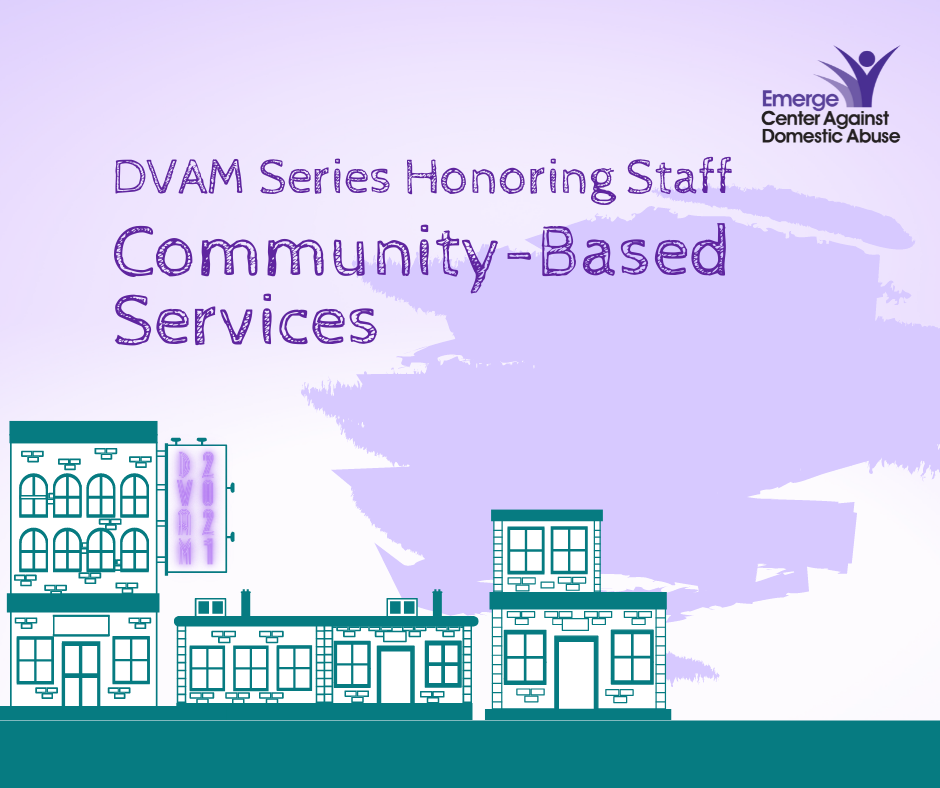
This week, Emerge honors all the staff who work with children and families at Emerge. The children coming into our Emergency Shelter program were faced with managing the transition of leaving their homes where violence was happening and moving into an unfamiliar living environment and the climate of fear that has permeated this time during the pandemic. This abrupt change in their lives was only made more challenging by the physical isolation of not interacting with others in person and was undoubtedly confusing and scary. Continue reading
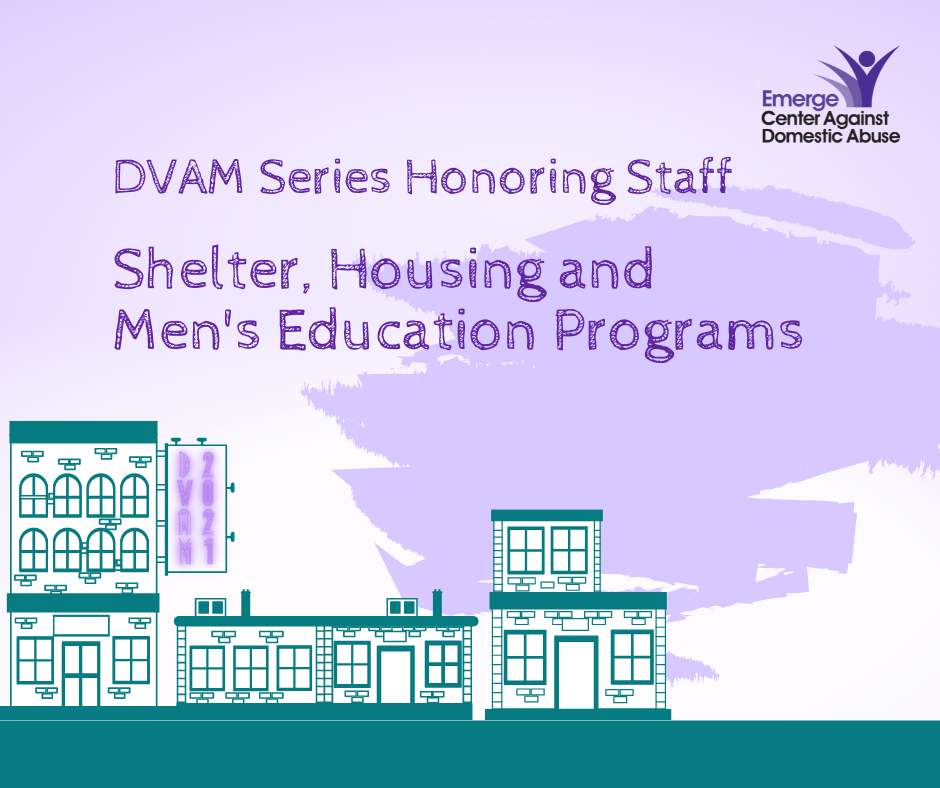
This week, Emerge features the stories of staff working in our Shelter, Housing, and Men’s Education programs. During the pandemic, individuals experiencing abuse at the hands of their intimate partner have often struggled to reach out for help, due to increased isolation. While the whole world had to lock their doors, some have been locked in with an abusive partner. Continue Reading
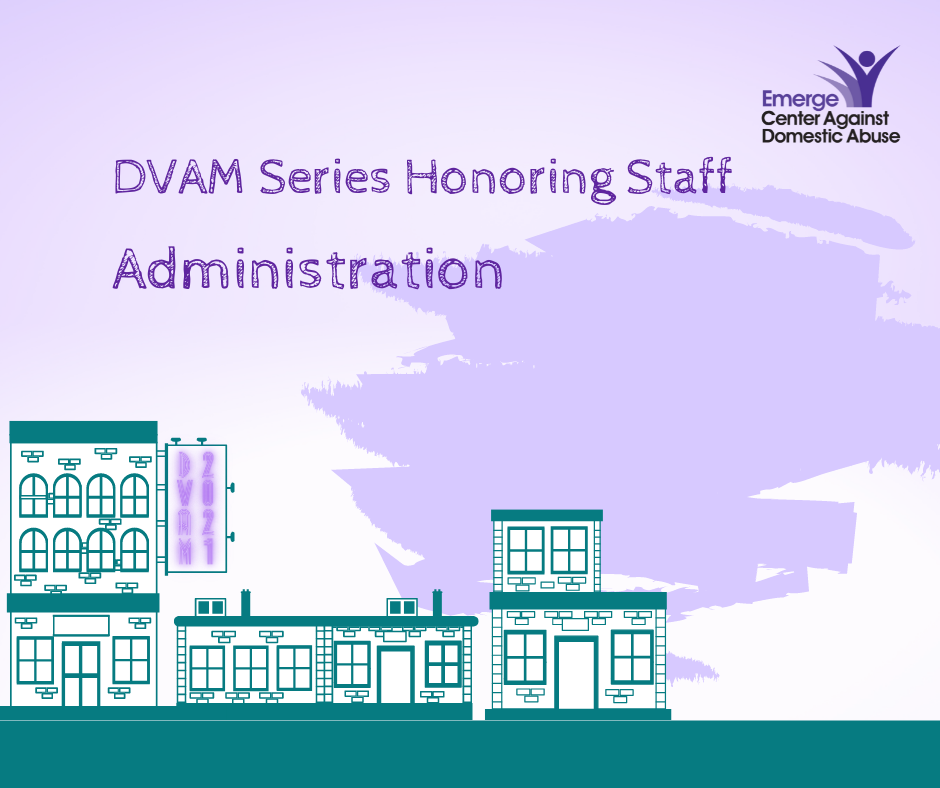
In this week’s video, Emerge’s administrative staff highlight the complexities of providing administrative support during the pandemic. From rapidly changing policies to mitigate risk, to re-programming phones to ensure our Hotline could be answered from home; from generating donations of cleaning supplies and toilet paper, to visiting multiple businesses to locate and… Continue Reading
Untold Stories Series 2020
Let's Heal Our Community
As we take time to reflect on our work this October, Domestic Violence Awareness Month, this year feels different. Not different because domestic abuse is markedly worse when you’re locked in with your abusive partner. Not different because of the shift to remote services that many human service organizations have had to make over the last year. But different because our community is beginning to think about how we can build meaningful change. Different, because we as a community are recognizing that our community’s systems have not addressed the safety of everyone in our community. Different, because we are no longer willing to stay quiet about the injustices we see in these systems every day, perpetrated against those who we love – especially women of color.
These institutionalized systems, like education, healthcare, criminal justice and law enforcement, human services, have pushed so many into the invisible margins of our community. Our collective call for change and systemic accountability is weighing heavily on us – we must listen and heed the desperate call and need for change.
Emerge is not exempt from this responsibility. We must acknowledge our role as an institution in our community and how we have operated in ways that do not acknowledge the ways that the brokenness of our systems has left so many survivors in our community to find their own way. In fact, during the fourth week of October, you’ll read more about the introspective social justice work in which we have engaged over the last six years, to better ensure equitable treatment and visibility of all survivors.
Over the next four weeks, we invite you to join us in our work to sit in the hard truths that we have not acknowledged the full experiences of so many survivors. We can all use this opportunity to think deeply about the space we each occupy in our community. Emerge has partnered with several organizations to bring unheard voices to our educational campaign this October. These voices may challenge you, and you may feel a reaction. We invite you to observe your reaction and reflect upon it.
We invite you to help us use this opportunity not as a form of divisiveness but instead to see these conversations as a path to change, and ultimately to healing as a community.
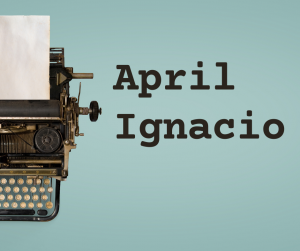
Published October 15, 2020
The violence against Indigenous women has been so normalized that we sit in an unspoken, insidious truth that our own bodies do not belong to us. My first recollection of this truth is probably around the age of 3 or 4 years old, I attended the HeadStart Program in a village called Pisinemo. I remember being told “don’t let anyone take you” as a warning from my teachers while on a field trip. I remember being afraid that in fact someone was going to try and “take me” but I didn’t understand what that meant. I knew I had to be in sight distance from my teacher and that I, as a 3 or 4 year old child then became suddenly very aware of my surroundings. I realize now as an adult, that trauma was passed on to me, and I had passed it onto my own children. My oldest daughter and son both recall being instructed by me “don’t let anyone take you” as they were traveling somewhere without me. Click here to read full article

Published October 23, 2020
Emerge has been in a process of evolution and transformation for the last 6 years that is intensely focused on becoming an anti-racist, multicultural organization. We are working every day to uproot anti-blackness and confront racism in an effort to return to the humanity that lives deep within all of us.
We want to be a reflection of liberation, love, compassion and healing – the same things we want for anyone suffering in our community.
Emerge is on a journey to speak the untold truths about our work and have humbly presented the written pieces and videos from community partners this month. These are important truths about the real experiences that survivors have trying to access help. We believe that in that truth is the light for the way forward. Click here to read full article

Rape Culture and Domestic Abuse
Published October 9, 2020
While there has been much heat in the public debates about civil war-era monuments, Nashville poet Caroline Williams recently reminded us of the often-overlooked stake in this issue: rape, and rape culture. In an OpEd entitled, “You Want a Confederate Monument? My Body is a Confederate Monument,” she reflects on the history behind the shade of her light-brown skin. “As far as family history has always told, and as modern DNA testing has allowed me to confirm, I am the descendant of black women who were domestic servants and white men who raped their help.” Her body and writing function together as a confrontation of the true results of the social orders that the U.S. has traditionally valued, especially when it comes to gender roles. Despite the robust amount of emerging data that links the traditional gender… Click here to read full article.
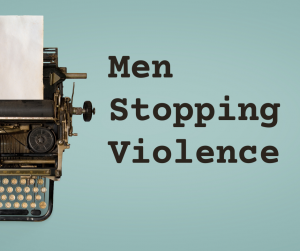
An Essential Path To Safety and Justice
Published October 9, 2020
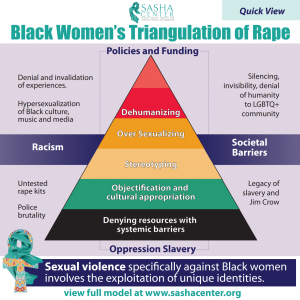
The Historical Narrative That Normalizes Violence
Published October 2, 2020
Healing trauma is never an easy, painless process. But it must happen, and it requires creating space to hear the stories of those who have been ignored and actively silenced for far too long. This piece in the New York Times by Caroline Randall Williams, written earlier this year, helped us recognize the complexity of our historical narrative, and the need to acknowledge and address the many threads that are woven into our history, normalizing violence for Black women especially. Therefore, for DVAM this year, all of our educational articles will be framed from and inspired by Williams’ article.

Justice Begins Where Violence Toward Black Women Ends
Published October 2, 2020
This week, Emerge is honored to lift up the voice of Cecelia Jordan, who presents an important interrogation of what it means to be part of the Black community in a society that glorifies the domestic and sexual violence inherently connected to the experience of slavery in this country. Cecelia responds to Williams’ article and argues that until we take a deep, honest look at all of our institutionalized systems that disadvantage people of color, safety will remain an “unattainable luxury for those with Black skin.”
Untold Stories Series 2019
For decades, the issue of domestic violence (DV) lived in the shadows as a taboo topic. More recently, massive efforts have moved us past those misguided days, and instead, invite engagement in both private and public dialogue. As a result, a national conversation has been created around DV and more survivors of abuse are finding their way to the resources they need and deserve. However, truth be told, only some aspects of this very complex issue are discussed: the aspects that are easier to wrap our heads around, the people who we can relate to the most, and the situations that feel most comfortable to us. But there are many more important elements to raise awareness about, and many more people whose stories are still largely left untold.
In the months ahead, Emerge is committed to shining light on—and honoring—these untold stories. Our goal is to broaden and reshape the existing narrative by reflecting the experiences and needs of ALL abuse survivors in our community.
Below you’ll find three untold stories that will be released throughout October, as well as resources.
Survivors Who Choose to Stay

The first untold story centers around those domestic abuse survivors who choose to stay in their relationship. This piece, written by Beverly Gooden, was originally published by the Today Show in 2014. Gooden is the creator of the #whyistayed movement, which began after the “why doesn’t she leave” question was repeatedly asked of Janay Rice, after a video surfaced of her husband, Ray Rice (formerly of the Baltimore Ravens), physically assaulting Janay. Read Beverly’s letter to herself here.
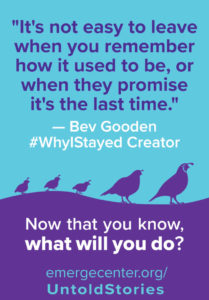
It’s not easy to see our loved ones suffering from domestic abuse, but it is important—sometimes life-saving—to be there for them. Learn how to provide the best support to somebody by giving the best of you. Read more here.
DV Survivors Who Die by Suicide

October 7, 2019
This week’s rarely told story is about domestic abuse victims who die by suicide. Mark Flanigan recounts the experience of supporting his dear friend Mitsu, who would have been 30 years this coming Friday, but unfortunately died by suicide one day after disclosing to him that she was in an abusive relationship.
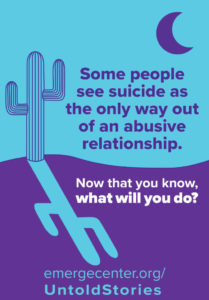
Missing and Murdered Indigenous Women and Girls
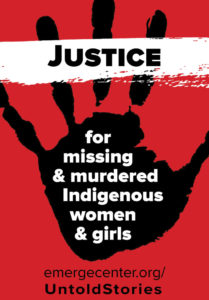
October 14, 2019
Supporting Indigenous Women & Girls
April Ignacio, a citizen of the Tohono O’odham Nation and the founder of Indivisible Tohono, shares her experience connecting with families in her community whose mothers, daughters, sisters or aunts had either gone missing or lost their lives to violence.
Community Resources
- The Emerge hotline is available to survivors, as well as friends and family who are concerned about someone experiencing abuse and want to know more about ways to be supportive. Emerge 24 Hour Multilingual Hotline: 520.795.4266 or (888)428-0101
For domestic abuse support, your loved one can call Emerge’s 24/7 multilingual hotline anytime at 520-795-4266 or 1-888-428-0101.
For suicide prevention, Pima County has a community-wide crisis line: (520) 622-6000 or 1 (866) 495-6735.
There’s the National Suicide Hotline (which also includes a chat feature, if that’s more accessible): 1-800-273-8255
- Our Work, Our Stories by the Urban Indian Health Institute
